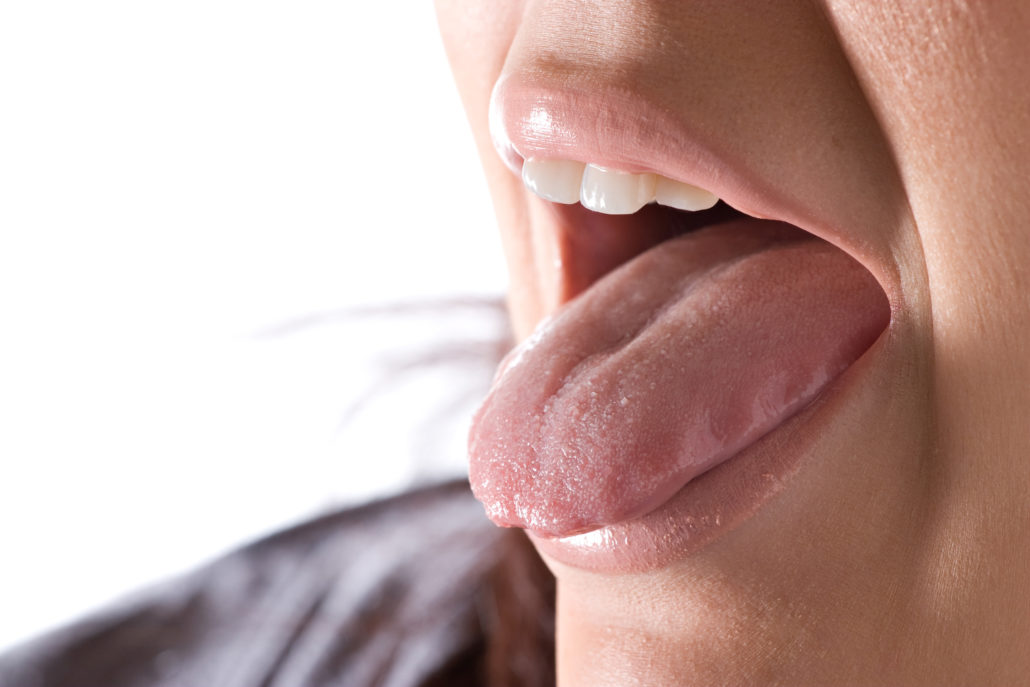The phenomenon of white tongue is often a cause for concern as it can also be seen with the naked eye precisely because our tongue is covered by a thin white layer. This white layer is called the white patina.
White tongue often consists of:
- dead cells
- bacteria
- toothpaste and/or mouthwash residue
All these factors put together contribute to determining the white color of the tongue. Similarly, even prolonged dryness of the oral mucous membranes can give the tongue the same whitish color.
We have previously said how important it is to maintain proper oral hygiene, this makes it less likely that complicated situations will follow. However, poor oral hygiene is not the only cause of white tongue, the presence of certain pathologies may cause concern.
But what exactly is it about? What are the causes? Are there any remedies or preventions?
Possible causes of white tongue
In most cases, white tongue is a temporary phenomenon caused by poor oral hygiene or by taking medicines that can favor dryness of the oral cavity. In other cases, if this phenomenon continues, it can be a symptom of much more serious pathologies.
It is therefore always advisable to leave the possibility of investigating the origin of the problem in more detail to your trusted dentist.
Pathologies that determine it
Some pathologies can sometimes be the cause of the presence of the white patina on our tongue. The pathologies we can find are:
- Respiratory tract diseases: tonsillitis, pharyngitis, bronchitis and even the most common colds can affect the appearance of our tongue. The main reason is that infection, inflammation or simple irritation of the throat and nose causes us to breathe incorrectly. This causes dehydration of the oral cavity and consequently the formation of the white patina on the tongue.
- Gastrointestinal diseases: the appearance of the white tongue can be an indicator of a malfunction of the gastrointestinal system. In fact, it is often a symptom of gastroesophageal reflux, gastritis, the presence of helicobacter pylori, difficulty in digestion.
- Liver disease: white tongue is also a warning sign for liver disease, in particular it could be a sign of liver malfunction due to hepatitis or cirrhosis of the liver.
- Infectious diseases: diseases such as Herpes simplex or infectious mononulceosis can give rise to white tongue during their infectious process. In fact, this type of infection alters the balance of the oral mucosa.
Did you know that lifestyle can also impact?
To give rise to the phenomenon of white tongue, in addition to pathological causes, there are also causes closely related to lifestyle.
A bad diet, for example, can cause the whitish patina on the tongue. The consumption of fatty foods, dairy products or the lack of vitamins and mineral salts can alter the mucous membranes of the mouth and favor the phenomenon of white tongue.
Another cause may be the use of antibiotics that alter the bacterial flora of the oral cavity. Even stress favors the proliferation of bacteria and therefore the chromatic alteration of the tongue.
Often the whitish patina on the tongue is accompanied by the unpleasant sensation of bitter mouth and also bad breath.
What to do if you have a white tongue and what types of prevention to use?
First of all it is important to consult your dentist to understand the origin of the phenomenon. Consequently, it will be possible to establish whether it is given by specific pathologies or whether it is strongly conditioned by lifestyle.
Once the extraneous nature of the pathological factors has been established, it is possible to adopt some measures to change the lifestyle and prevent the problem.
To prevent the phenomenon of the white patina it is necessary:
- Brush your teeth and tongue well for thorough cleaning of the entire oral cavity.
- Avoid using hydrogen peroxide-based mouthwash as it could, by reaction, create a white film on the tongue
- Drink plenty to avoid dehydration of the oral cavity
- Take a suitable amount of vitamins compared to the daily requirement
In our Sanident Dental Center in via Settembrini, 6, in Milan, our specialists take care of your oral health by providing advice and suggestions for correct oral hygiene. Book a visit!









